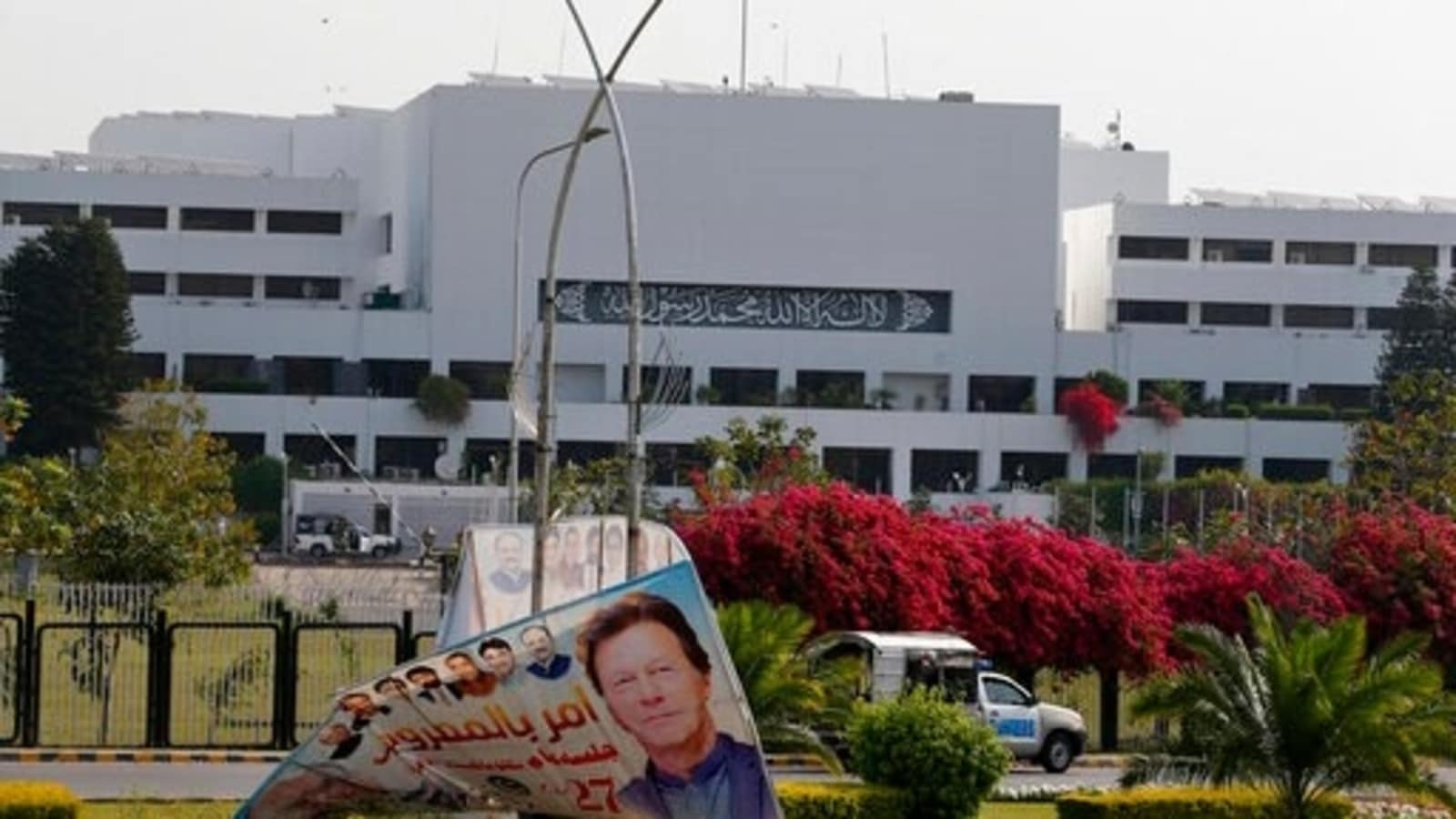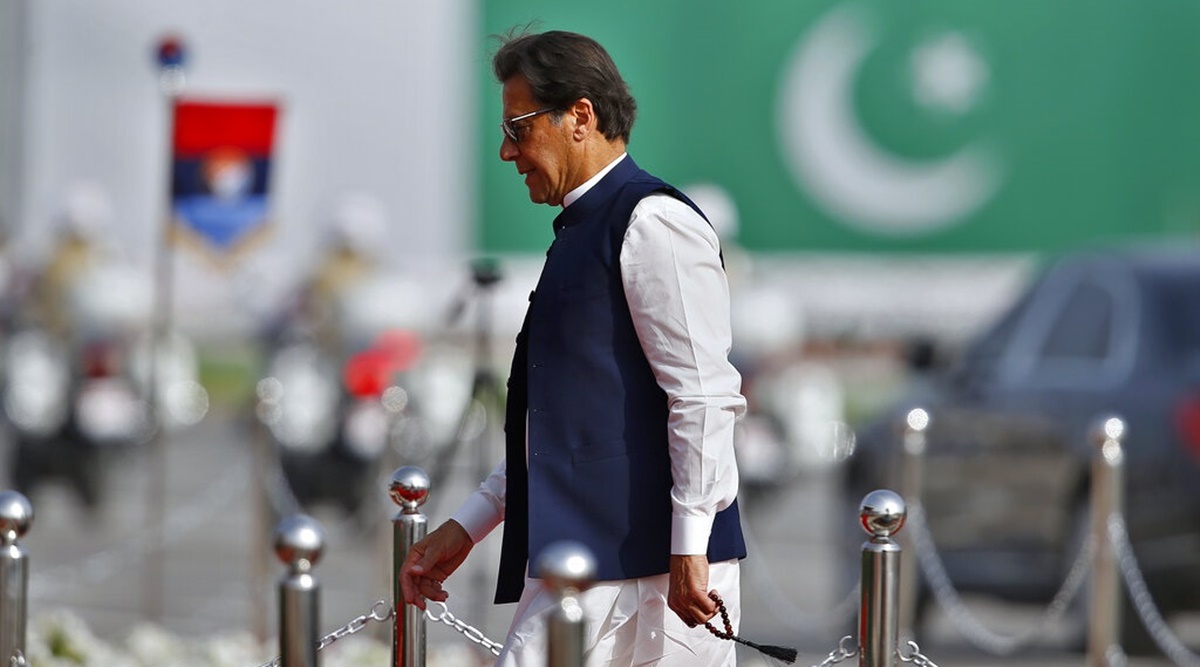Imran Khan no longer PM, notifies Pakistan government

Pakistan’s cabinet has been informed that Imran Khan has stepped down as prime minister.
Imran Khan has been removed from the prime minister of Pakistan right now, a government release says.

“The Pakistan Assembly was dissolved by the President of Pakistan in accordance with Article 58(1) and Article 48(1) of the Constitution of the Islamic Republic of Pakistan,” a circular from the Pakistan government read. “Mr. Imran Ahmed Khan Niazi has ceased to be Prime Minister of Pakistan with immediate effect.”
Prime Minister Imran Khan told President Arif Alvi to dissolve Pakistan’s National Assembly (NA) just minutes before Deputy Speaker Qasim Suri refused to vote against the PM, effectively giving him less than a majority in Parliament’s lower house.
Meanwhile, the opposition named Shehbaz Sharif, the leader of the PML-N, as prime minister with the support of 195 people.
Any of Pakistan’s government bodies can’t take “Unconstitutional” steps after a vote of no-confidence against Prime Minister Imran Khan was thrown out by most of its members. The president then agreed to dissolve Parliament on Khan’s advice.
- Pakistan’s president has thrown out the National Assembly because Prime Minister Imran Khan told him to.
- The deputy speaker said that the motion for a no-confidence vote against Khan was against the law and part of “foreign powers” plan to mess with Pakistan’s democracy.
- The opposition, which was trying to get rid of Khan, has called it a sham.
- They say they will go to the Supreme Court to fight it. Opposition leader Bilawal Bhutto Zardari says they will do this.
- It looked like the opposition had the votes to get rid of Khan after some of his political allies and members of his party changed their sides.
- People in charge of information say that Khan’s cabinet has been disbanded.

Pakistan is in a state of “instability,” says a reporter.
She told Al Jazeera that the country is in a state of “instability and a crisis of the constitution.”
“What is dangerous is that the government itself, which is supposed to protect and follow the constitution and law, is willing to break the constitution in order to stay in power.”
This happened: “There was a fear that the ruling party would use unconstitutional ways to avoid the vote of no trust. This was a few days before it happened.” The interior minister said that political parties should be banned or that the Pakistani military should help. PTI’s message seems to be: “If we can’t rule, no one can.”
It was a “blatantly unconstitutional move,” Salahuddin Ahmed, a lawyer for the Supreme Court and a constitutional expert, told Al Jazeera.
As the Speaker of Parliament, he has to keep track of the votes, and he doesn’t have to decide whether any opposition members are part of a foreign conspiracy. In this case, he can’t just say, “I don’t believe in you,” he said.
“I can’t remember any elected civilian government in the past making such a bold move against the law.” Today, the Pakistan Tehreek-e-Insaf (PTI) party has effectively replaced the will of the Parliament with the whim of the speaker.

Imran Khan tells the opposition to “accept” the elections.
There should be new elections instead of “being part of a foreign conspiracy to change the regime,” Pakistani Prime Minister Imran Khan has said.
Why are people afraid of elections now? They have been yelling about how our government has failed and lost the support of the people. Tweet: “Democrats go to the people for help.”
On Monday, the Pakistan court will decide whether to hear arguments.
Pakistan’s Supreme Court will hear arguments on Monday about the president’s abrupt dissolution of Parliament, a statement from the court says. This is what the report says:
“This is an essential thing. The case is set for tomorrow. The chief justice said that notices had been sent to all political parties and state officials
Leader of the opposition: Cancelling a vote is “high treason.”
PM Khan has been accused of “high treason” by the opposition leader, Shehbaz Sharif.
If you break the law in a pronounced way, there will be consequences. “I hope the Supreme Court will do its job to keep the Constitution.”
Islamabad is in the middle of a constitutional crisis. Some of the country’s most important
PTI leader Imran Khan asked the president of Pakistan to dissolve Parliament, and the president did so. A dramatic showdown ended weeks of opposition efforts to break up a coalition Khan had built around his party to become prime minister in 2018.
The Army says it doesn’t have anything to do with the political problems in the country at the moment.
Pakistan’s Army says it has nothing to do with its current political problems. This is what they say:
Statement: “We have nothing to do with what happened in parliament today.” Inter-Services Public Relations (ISPR), the military’s media arm, said.
Conclusion:
Right now, Imran Khan is not Pakistan’s prime minister, a government statement says. You should know this: President Arif Alvi voted to get rid of Pakistan’s National Assembly. They named Shehbaz Sharif PM with 195 votes. Bilawal Bhutto Zardari, the opposition leader, says they will go to the Supreme Court to fight against it. Imran Khan’s party has effectively replaced the Parliament’s will with the speaker’s whim.
Prime Minister Imran Khan told President Arif Alvi to dissolve Pakistan’s National Assembly (NA) just minutes before Deputy Speaker Qasim Suri refused to vote against the PM, effectively giving him less than a majority in Parliament’s lower house.
People who work for the Supreme Court said it was “blatantly unconstitutional.” Salahuddin Ahmed, a constitutional lawyer, says that. He said that political parties should be banned or that the Pakistani army should help. A hearing in Islamabad’s Supreme Court will take place on Monday about the country’s president’s decision to break up Parliament. It’s been said that Imran Khan’s PTI party is guilty of “high treason” by an opposition leader. There are a lot of problems in Pakistan right now, but the country’s army says it has nothing to do with them at the moment.



